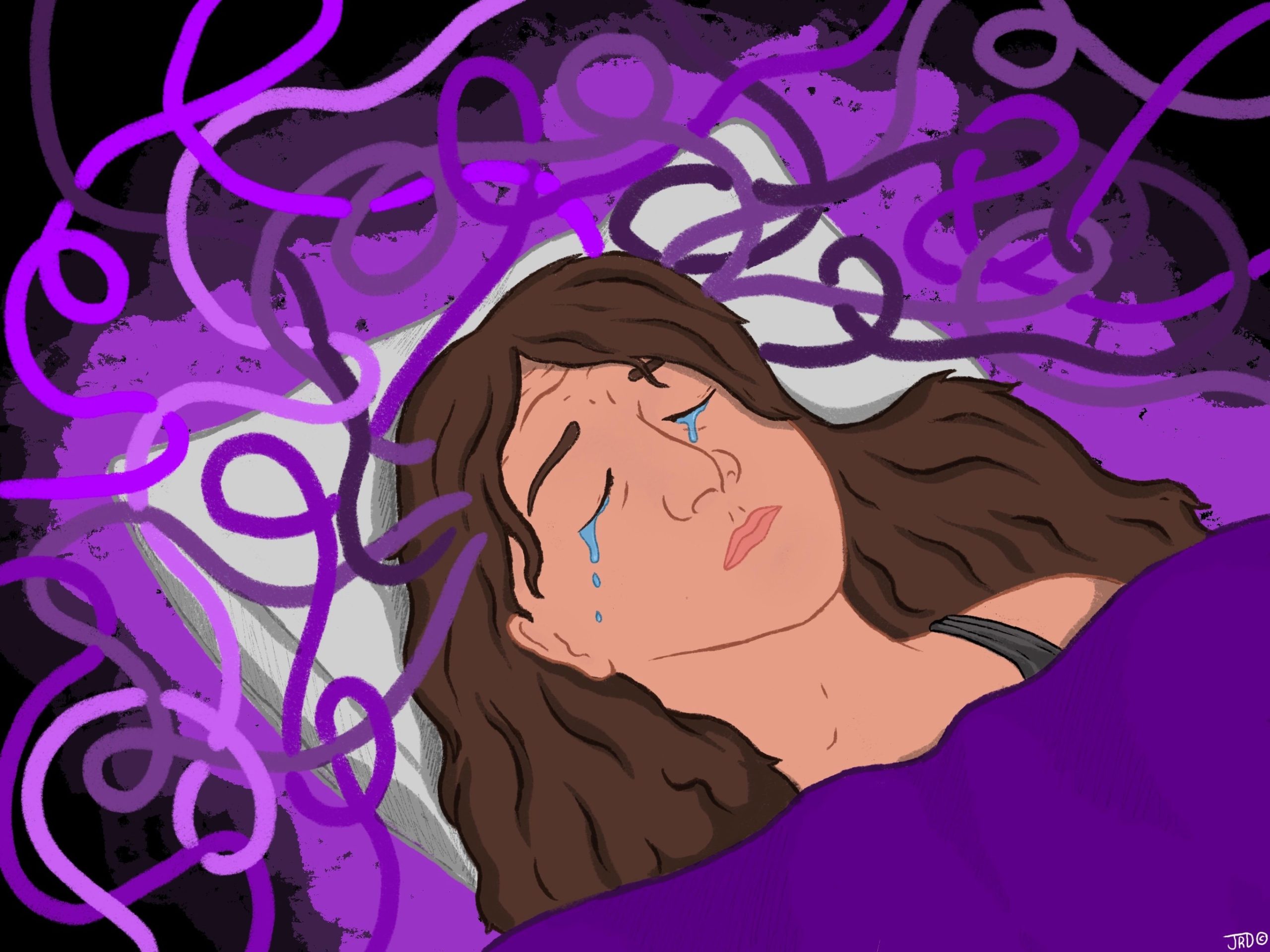
“You’re going to be okay; you’re going to be okay.”
Laying in bed with tears brimming at my eyes, I would repeat these words; but no matter how many times these words fell from my lips, I could never believe them. At the moment, I could only see, what appeared to be, my impending doom looming over me. But within that, there was a glimmer of hope that resided in me: hope for a better tomorrow.
Overthinking can be an inconvenience for many, and for me it certainly was. It usually began in those moments of silence, where the only thing I could hear was the sound of the ceiling fan whirring or the water heater suddenly making noise, where the only thing I was left with was my own thoughts. I would often try to distract myself with drawing, writing, or even calling loved ones on the phone. But no matter what I tried, I couldn’t seem to escape it.
It started with simple thoughts: “Why did you say that?” “Why didn’t you do this?” “You messed everything up.” But as soon as one thought would emerge, it would begin to fester.
This ultimately led to an unhealthy amount of self-deprecating thoughts, where I ridiculed anything and everything that I had said or done. This is a cycle that occurred often, sometimes even daily. And I could tell it was taking a toll on my mental health. I was eating less, the number of hours I slept was slowly decreasing and my attitude had changed. I just didn’t feel like my old self anymore, and I didn’t know what to do or who to talk to.
During this time, I somehow convinced myself that if I opened up to others, I would be a burden to them or an inconvenience. I kept most things bottled up. And the times where I did open up to a person I felt horrible for doing it.
Not only did I think that I was an inconvenience, but I also started to believe that my feelings were an inconvenience. Until one day, I looked up at the ceiling and I had this thought: “You matter; your feelings matter.” This had been the very same advice I’ve told people for years, but only then did I truly hear the words.
These words gave me the courage to reach out to someone, and I did. That person was my boyfriend.
At the time, I was nervous to open up to anyone, including him because I feared that I would become a burden. But when I did open up to him fully, he made it feel so natural. He even reassured me that I wasn’t a burden to him because he just wanted me to be happy. He was happy to help by listening to me explain what was bothering me and even offering advice. But most importantly, he was there for me.
This made me feel less alone in this situation and helped me realize that those who love me wouldn’t view me as a burden because they care about me and want me to be happy. And if that meant just listening to me so that I didn’t have to bottle up my feelings, then they would be glad to do so.
Reaching out was just the first step for me. Eventually, I started to develop a much healthier mindset with the help of those around me and advice from books I’ve read. I can recount multiple times where I’ve been given small pieces of advice and read excerpts from books that have helped develop the mindset I have today.
I remember talking to a trusted adult about a situation I had been stressing over at the time, and they said to me, “Lorena, stressing won’t help you in this situation; it can’t fix what’s happening. It will just make the situation more difficult for you.”
This is one piece of advice I have carried with me, even to this day.
Now, when I begin to feel myself start overthinking, I ask myself, “Will worrying help this situation?” and time after time, the answer is “No.”
I remember another time when I was reading a book full of life lessons and one, in particular, stood out to me. The book compared our actions to the ringing of a bell and said that a bell can’t be unrung. Essentially, this means that when we do something we may regret we can’t dwell on it because it simply can’t be undone, like the ringing of a bell. Instead, we have to accept it and move forward in our lives.
This has tremendously helped me in my life and has alleviated most of my excess stress about things that I did. I have integrated these bits of advice into my daily life and they have helped me learn to rationalize before I start to overthink.
Nowadays, I am much better at managing my overthinking, but I would be lying if I said it was completely gone.
At times, I can get sucked into my old cycles, but there’s a large difference in how I deal with it now. Before, when I began to overthink, I couldn’t stop myself, but now I am able to stop myself by rationalizing the situation I am in. I am able to tell myself that there is no point in worrying because it won’t make the problem go away, and that has allowed me to have a more positive mindset.
More than that, I don’t criticize my actions as much as I used to. Instead, I am able to recognize that making mistakes is a normal occurrence because as humans, we make mistakes. With all of these changes, my mindset – and my life – is much better now.
This combination of loving advice from family and friends, advice from self-help books, and a determination to stop overthinking is what truly helped me to become the person I am today.


